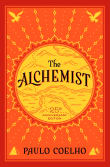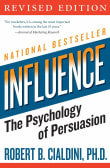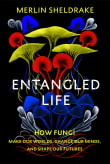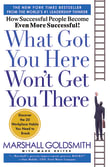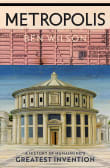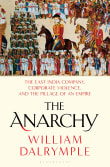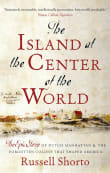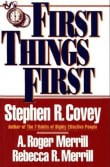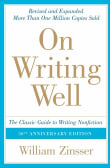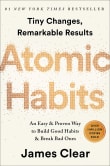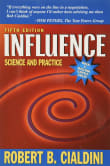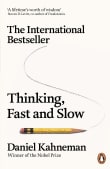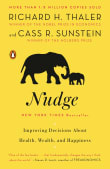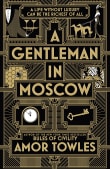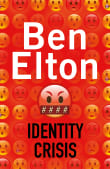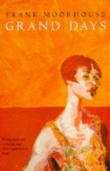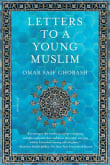Sapiens
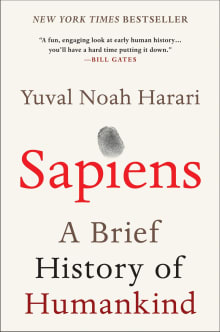
Book description
100,000 years ago, at least six human species inhabited the earth. Today there is just one. Us. Homo sapiens. How did our species succeed in the battle for dominance? Why did our foraging ancestors come together to create cities and kingdoms? How did we come to believe in gods, nations…
Why read it?
26 authors picked Sapiens as one of their favorite books. Why do they recommend it?

Treats human history as universal experience rather than a fragmented conflict between groups.

Yuval Noah Harari connects the dots between our past and the future, providing insights into how we've shaped and been shaped by innovation.
This book inspired me to think about the broader implications of AI and technology on our species. It fuels my passion for leveraging innovation to make a positive impact on society.
From Karl's list on teach you to embrace the future.

Sapiens: A Brief History of Humankind is well-written, challenging, and edifying.
If you love Sapiens...

What I love about this book is its ambition to tell the history of humankind in a way that attends both to our evolutionary origins over millions of years and our cultural accomplishments over thousands of years–and to consider the implications of both for our present and future. Very few books attempt to do such a thing. All the other books I have listed among my favorites are exceptionally ambitious in other ways, but they only attempt to bring together a part of the human story rather than integrating the whole.
Sapiens helped me to realize that there was an…
From Harvey's list on evolutionary origins of the modern world.

Long before Yuval Noah Harari became one of the world’s leading philosophers and a best-selling pundit, he was a professor at the Hebrew University of Jerusalem, where his “Brief History of Humankind” was a popular course. Harari presented what would eventually become this book as a series of online videos, which is how I first experienced his work. The book is even better.
How does this relate to business and entrepreneurship? If you’re going to build a business, it's critical to understand human nature. And what better way to understand human nature than through learning how humans have behaved from…
From Brian's list on future entrepreneurs of business and tech.

Being “lonely at the top” is often a problem of being stuck inside an infinite loop of cycling voices in your head. I can get insanely maniacal about the little things and have difficulty breaking out of the cycle.
This book came at a time when I was deep in one of those cycles. It was a mind-blowing look into why we are who we are and how homo sapiens systematically took over the planet. It was such an “aha” moment for me that it made all the voices go away, and I could see why and how my…
From Dave's list on leaders feeling lonely at the top.
If you love Yuval Noah Harari...

I'm not sure when I have learned more about humanity than with the books of Yuval Harari.
I recommend this book as it is the first of the series, and I could read it over and over and still not have captured everything that Yuval Harari explores and teaches us.
A great historian who uses history to explore our future, Yuval Harari is one whose books I read every chance I have.
From Sarah's list on working together towards a bright future.

Bored with history books full of battlefields, military equipment, long lists of battles and treaties, and discussions of changing alliances among the heavily intertwined royal families? I certainly was. And that’s why I found Yuval Noah Harari’s unique look at the history of our civilization so appealing.
In particular I greatly appreciated his focus on scientific and technological progress as drivers of development, highlighting in particular the role of the European Scientific Revolution of 16th century CE, an episode much less appreciated than the later Industrial Revolution but probably equally consequential.
A top pick for anyone who wants to…
From Jakub's list on the past and future of our civilization.

As a historian, my reading leans heavily toward the historical, whether fiction or non. Seldom does a book grab me like Sapiens did.
It changed my perspective of human evolution with its basic premise that what was good for the human race (homo sapiens) has not necessarily been good for the individual human. A fascinating, smoothly written history of humankind that is hard to put down—honest! Even if you’re not a historian! (This would make an excellent book club book.)
If you love Sapiens...

When I read Sapiens, it inspired me to read more on migration of homo sapiens and how the human evolutions in different fields took place over thousands of years.
From hunter-gatherer to a social animal journey is covered in detail with respect to economical and political development over ages. The genetic mutation is very well explained apart from religion, myths, and Gods. It has inspired me to write my own book.
From Shweta's list on connecting past, present and future civilization.
Want books like Sapiens?
Our community of 12,000+ authors has personally recommended 100 books like Sapiens.





